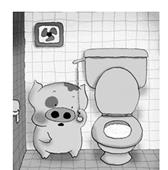题目内容
The cultures of the East and the West really distinguish each other a lot. This is because the culture systems are two 1 systems on the whole.
The 2 of the eastern cultures is mainly from two countries: China and India. Both of the two cultures are gestated(孕育) by rivers. In China, the mother river is the Yellow River 3 the Indian one is the Hindu River. These two cultures were developed for several thousand years and formed their own 4. Then in Dang Dynasty of China, the Chinese culture 5 went overseas to Japan, 6 into the Japanese society and shaped the Japanese culture nowadays. Though a bit different from the Chinese one, it belongs to the same 7.
When the two mother rivers gave birth to the eastern culture, another famous culture was 8 on the Mesopotamian Plain ---- the Mesopotamian Civilization. This civilization later on developed into the cultures of the Ancient Greece and Ancient Rome. And these two are well-known 9 the base of the European culture. Like the Chinese culture, the European one also 10 waters. When the colonists of England 11 in America, their culture went with them over the Atlantic Ocean. So the American culture doesn't 12 from the European one a lot.
At the same time, the difference of the language systems 13 the cultural differences. In the East, most languages belong to the pictographic language (see the picture below) while the Western languages are mostly based on the Latin system, for example, the one I’m using to write this paper.
Other factors like human race difference counts as well. But what’s more, 14 the far distance and the steep areas between the East and West, the two cultures seldom communicate until recent centuries. So they grew up totally in their own ways with almost no 15 from the other.
- 1.
- A.connected
- B.separate
- C.ancient
- D.remote
- A.
- 2.
- A.preservation
- B.development
- C.resource
- D.origin
- A.
- 3.
- A.if
- B.until
- C.while
- D.as
- A.
- 4.
- A.styles
- B.habits
- C.ways
- D.means
- A.
- 5.
- A.hurriedly
- B.slowly
- C.unfortunately
- D.suddenly
- A.
- 6.
- A.made
- B.crashed
- C.mixed
- D.applied
- A.
- 7.
- A.culture
- B.nation
- C.influence
- D.system
- A.
- 8.
- A.brought up
- B.brought out
- C.brought in
- D.brought along
- A.
- 9.
- A.after
- B.as
- C.for
- D.of
- A.
- 10.
- A.crossed
- B.drunk
- C.swam
- D.plunged
- A.
- 11.
- A.touched down
- B.put down
- C.got down
- D.settled down
- A.
- 12.
- A.evolve
- B.judge
- C.distinguish
- D.rise
- A.
- 13.
- A.adds to
- B.results from
- C.turns up
- D.takes over
- A.
- 14.
- A.but for
- B.for all
- C.due to
- D.at all
- A.
- 15.
- A.relationship
- B.difference
- C.interference
- D.familiarity
- A.
试题分析:文章介绍东西方文化的起源和发展和它们之间的差异。
1.考查形容词:A. connected联系,B. separate分离的,C. ancient古代的,D. remote遥远的,这是因为两个文化系统是分离的,选B
2.考查名词:A. preservation保存,B. development发展,C. resource资源,D. origin起源,东方文化来源于两个国家,选D
3.考查连词:A. if如果,B. until 直到,C. while然而,D. as因为,正如,中国的母亲河是黄河然而印度的母亲河是印度河,表示对比,选C
4.考查名词:A. styles风格,B. habits习惯,C. ways道路,D. means方法,手段,这两种文化发展了几年前,有各自的风格,选A
5.考查副词:A. hurriedly匆忙地, B. slowly慢地,C. unfortunately不幸地,D. suddenly突然地,在唐朝中国的文化慢慢的到了海外的日本,选B
6.考查动词:A. made制作,B. crashed碰撞,C. mixed混合,D. applied应用,和日本的社会相融合,形成现在的日本文化,选C
7.考查名词: A. culture文化,B. nation国家,C. influence影响,D. system系统,虽然它和中国的文化不同,但是是一个体系的,选D
8.考查词组:A. brought up养育,出现,B. brought out显现,C. brought in引进,D. brought along带来,另外一个文化在米达米亚平原出现,选A
9.考查介词:A. after在…后面,B. as做为,C. for为了,D. of …的,这两种文化做为欧洲的文化基础而著名,选B
10.考查动词: A. crossed穿过,B. drunk喝,C. swam游泳,D. plunged用力插入,使陷入,象中国文明一样,欧洲的文明也穿越了水域,选A
11.考查词组:A. touched down降落,着陆B. put down记下,C. got down下来,D. settled down安顿下来,定居,当欧洲殖民者在美洲定居下来,选D
12.考查动词:A. evolve进化,B. judge判断,C. distinguish区分,使著名,D. rise升起,所以美洲的文化和欧洲的文化没有多大区别,选C
13.考查词组:A. adds to增加,B. results from源于,C. turns up出现,声音调大,D. takes over接管,语言系统的不同也增加了文化差异,选A
14.考查词组:A. but for要不是,B. for all 尽管, 虽然C. due to因为,预期,D. at all根本,由于中西方的遥远距离和险峻的地形,两个文化很少交流,选C
15.考查名词:A. relationship关系,B. difference不同,C. interference 干涉,干扰,冲突D. familiarity熟悉,它们完全自己发展没有相互的干扰,选C
考点:考查文化类短文

 名师导航单元期末冲刺100分系列答案
名师导航单元期末冲刺100分系列答案 名校名卷单元同步训练测试题系列答案
名校名卷单元同步训练测试题系列答案One evening in February 2007 . a student named Paula Ceely brought her car to a stop on a remote in Wales . She got out to open a metal gate that blocked her path . That's when she heard the whistle sounded by the driver of a train.Her Renault Clio parked across a railway line. Second later,she watched the train drag her car almost a kilometre down the railway tracks.
Ceely's near miss made the news because she blamed it on her GPS device(导航仪).She had never driven the route before .It was dark and raining heavily . Ceely was relying on her GPS. But it made no mention of the crossing ."I put my complete trust in the device and it led me right into the path of a speeding train ,"she told the BBC.
W ho is to blame here ? Rick Stevenson ,who tells Ceely's story in his book When Machines Fail US, finger at the limitations of technology. We put our faith in digital devices, he says,
but our digital helpers are too often not up to the job. They are filled with small problems. And it’s not just GPS devices: Stevenson takes us on a tour of digital disasters involving everything from mobile phones to wireless key boards.
The problem with his argument in the book is that it’s not clear why he only focuses digital technology,while there may be a number of other possible causes. A map-maker might have left the crossing off a paper map. Maybe we should blame Ceely for not paying attention. perhaps the railway authorities are at fault for poor signaling system. Or maybe someone has studied the relative dangers and worked out that there really is something specific wrong with the CPS equipment. But Stevenson doesn’t say.
It’s a problem that runs through the book. In a section on cars, Stevenson gives an accout of the advanced techniques that criminals use to defeat computer-based locking systems for cars. He offers two independent sets of figures on car theft; both show a small rise in some parts of the country. He  says that once once again not all new locks have proved reliable. Perhaps, but maybe it’s also due to the shortage of policemen on the streets. Or changing social circumstances. Or some combination of these factors .
says that once once again not all new locks have proved reliable. Perhaps, but maybe it’s also due to the shortage of policemen on the streets. Or changing social circumstances. Or some combination of these factors .
The game between humans and their smart devices is complex. It is shaped by economics and psychology and the cultures we live in. Somewhere in the mix of those forces there may be way a wiser use of technology.
If there is such a way, it should involve more than just an awareness of the shortcomings of our machines. After all, we have lived with them for thousands of years. They have probably been fooling us for just as long .
【小题1】
What did  Paula Ceely think was the cause of her accident?
Paula Ceely think was the cause of her accident?
| A.Shewasnotfamiliarwiththeroad. |
| B.Itwasdarkandrainingheavilythen. |
| C.The railway works failed to give the signal. |
| D.Her GPS device didn’t tell her about the crossing |
The phrase”near miss” (paragraph 2 ) can best be replaced by _______.
A.close bit bit | B.heavyloss | C.narrow escape | D.bigmistake |
Which of the following would Rick Stevenson most probably agree with?
| A.Moderntechnologyiswhatwe can’tlivewithout. |
| B.Digitaltechnologyoftenfalls shortofoutexpectation. |
| C.Digitaldevicesaremore reliablethantheyusedtobe. |
| D.GPSerrorisnottheonly causeforCelery’saccident. |
In the writer’s opinion, Stevenson’s argument is________.
| A.one-sided | B.reasonable | C.puzzling | D.well-based |
What is the real concern of the writer of this article?
| A.The major causes of traffic accidents and car thefts. |
| B.The relationship between humans and technology |
| C.Theshortcomingsofdigital devicesweuse. |
| D.Thehuman unawarenessoftechnicalproblems. |

 least able to make
jokes about each other. Here's one:What's the best thing about Britain's
relationship with France? The English Channel.
least able to make
jokes about each other. Here's one:What's the best thing about Britain's
relationship with France? The English Channel.